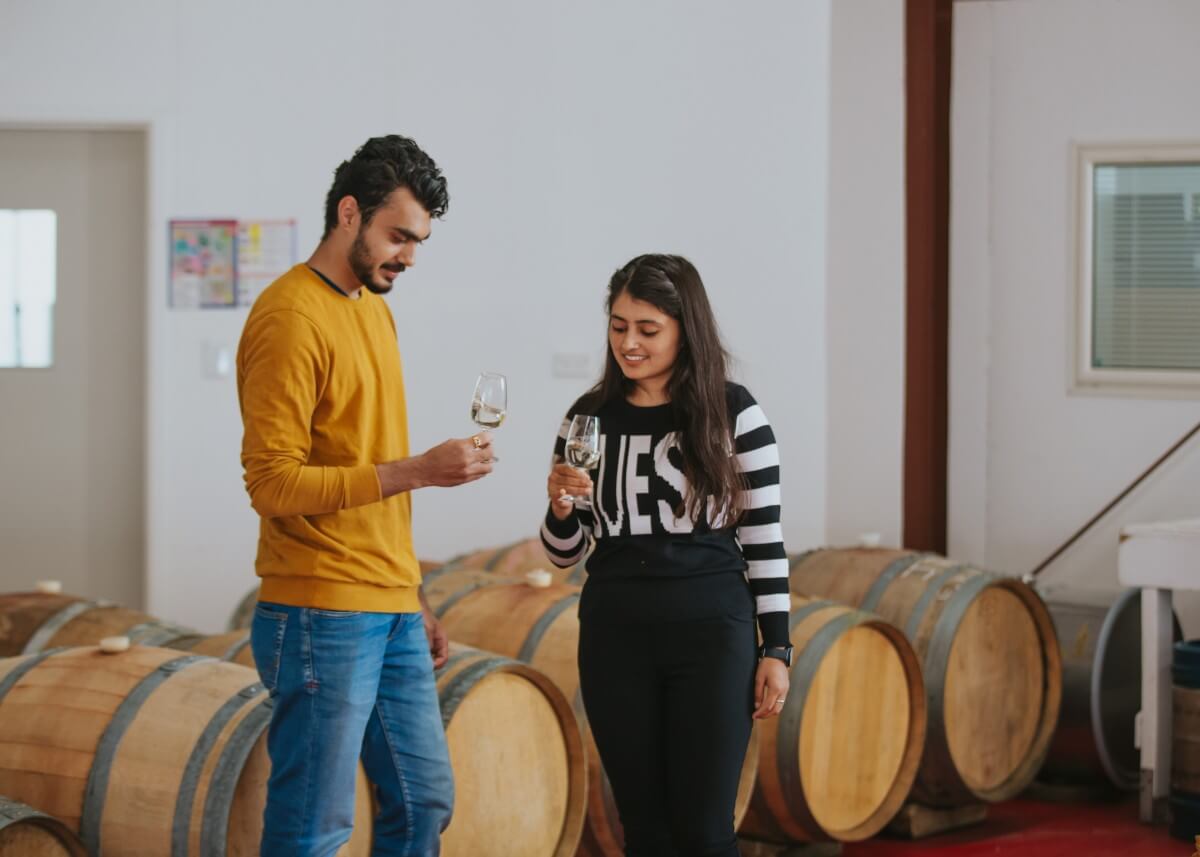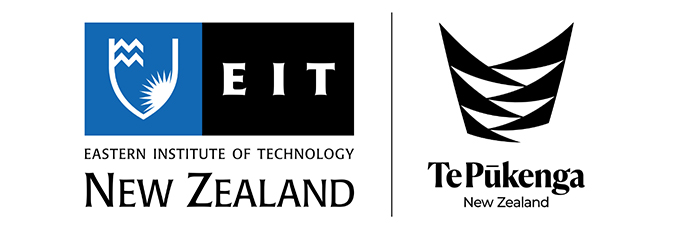Degrees today are designed with industry in mind, and for those interested in turning their passions for winemaking into a career, a degree in Viticulture and Wine Science is the right way to go.
Eastern Institute of Technology (EIT) in New Zealand offers a wide range of viticulture and wine science qualifications, taught by highly knowledgeable lecturers who are actively involved in the winemaking industry, which includes consulting and marketing.
A modern and innovative learning environment, including an excellent onsite winery, sensory room and state-of-the art laboratories supports the practical application of wine science so students can develop and hone the skills needed to embark on their careers.
As EIT has strong connections to the viticulture and wine industry, industry professionals love to connect and engage with EIT graduates so they become actively involved and contribute to the industry.
Mastering Wine Science through practical experience
The Bachelor of Viticulture and Wine Science EIT programme has been thoughtfully designed so students are equipped with all the tools needed for the field.

Source: EIT
Over a period of three to four years, EIT consulted with a range of interested parties, including the EIT industry liaison group, Hawke’s Bay viticulturists and winegrowers, current students and EIT Alumni – who now work in the industry – to create a new Bachelor of Viticulture and Wine Science programme.
The EIT liaison group is chaired by industry and comprises several wineries, allied companies, private grape growers, EIT staff and EIT student representatives. The group meets three times a year to feedback on potential study programmes and the latest industry needs.
Wakefield Harland–Baker, Hawke’s Bay Winery Manager at Indevin, said, “Indevin Hawke’s Bay has been involved in hosting EIT students through their work experience programme over the last four years and one of our first calls when we are hiring is EIT.
“It really is a mutually beneficial relationship. The calibre of these students has always been high and we’re lucky to have four of these outstanding EIT graduated students with us now.
“Over my time working with EIT students I see them grow in the work environment, which can be at times overwhelming, taking study into the real world. But there is that moment where you stand back and see the transformation of student into competent employee; as they take an immense pride and ownership in their work.”

Source: EIT
During the consultation stage, it was revealed that the industry wanted students to retain a strong foundation in science, but requested practical up-to-date industry application throughout the degree, palate development and exposure to business practices, such as people and company management skills, wine marketing and business establishment.
Sue Blackmore, Head of the School of Viticulture and Wine Science, said, “The EIT Bachelor of Viticulture and Wine Science has been designed in consultation with industry. This exciting new programme delivers much more emphasis on practical application in every year of the degree whilst retaining academic integrity with a very strong scientific foundation.”
That’s why the new course structure has been updated to include interaction with industry practices every step of the way, from year one through to graduation.
In year one, students are given training right off-the-bat in hands-on winemaking from vine to bottle. They also learn introductory sensory, viticulture and business, foundation science (microbiology, inorganic and organic chemistry, plant science), tractor driving skills, and first aid to prepare students for vineyard work.
In year two, students are given the opportunity to participate in a full winery vintage internship, further palate development and business, viticulture and wine extension and a preparatory course on research and statistics.

Source: EIT
In their final year, students take on a research project in collaboration with industry during one semester. The rest of the year, they develop their knowledge further with compulsory courses of advanced viticulture and wine sensory, plus three electives from Sustainability, Viticulture Management, Vine Health (including Growsafe), Wine Business, Marketing or Wine Microbiology.
Students are taught in state-of-the-art facilities by faculty with a breadth of experience as chemists, microbiologists, consultant winemakers and academic researchers.
Research done by staff includes a new method for sensory analysis using “napping”, which is a French term for “tableclothing”, by Victor Ye.
This method involves the placement of wine samples on a nappe/tablecloth in such a way that they can quantify the sensory differences between the different samples. This is the first time that this technique will be applied to Hawke’s Bay Chardonnay wines.
Prime location to study Wine Science
Further enhancing the study of Viticulture and Wine Science is the location in Hawke’s Bay – an ideal setting for this particular area of study due to its climate and surrounding vineyards.

Source: EIT
Hawke’s Bay is the most diverse wine growing region in New Zealand, with more than 200 vineyards and over 70 wineries of varied production ethos producing a wide range of grape varietals and wine styles.
There’s a wide range of wineries where students can engage in practical learning and explore more conventional forms of winegrowing along with organic and biodynamic production.
Besides the surrounding vineyards, Hawke’s Bay itself is an amazing place to live with a plethora of nature and wildlife areas, beautiful parks, arts and culture, and stunning scenic views.
EIT is offering cutting-edge, industry-relevant qualifications in Viticulture and Wine Science so that students receive up-to-date and comprehensive knowledge in the field.
Follow EIT on YouTube, Instagram, SnapChat and LinkedIn
Liked this? Then you’ll love…
Balancing theoretical knowledge with practical learning
Discover the world of wine science at Eastern Institute of Technology











